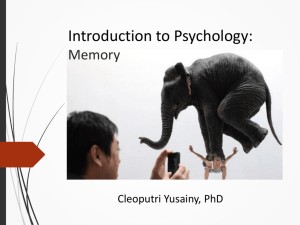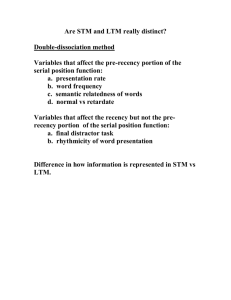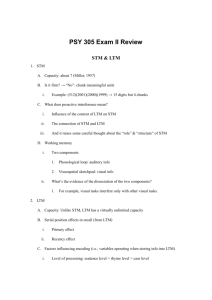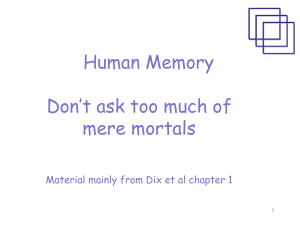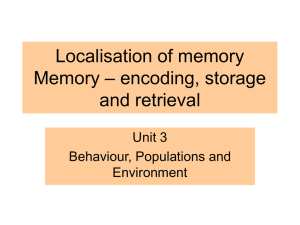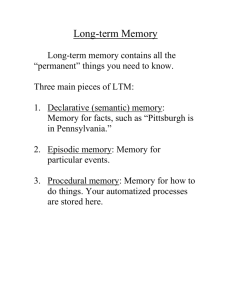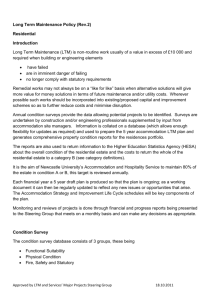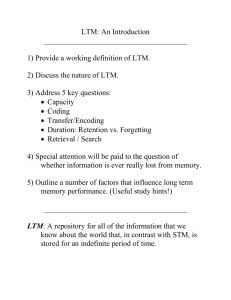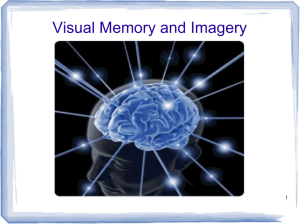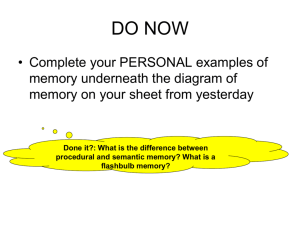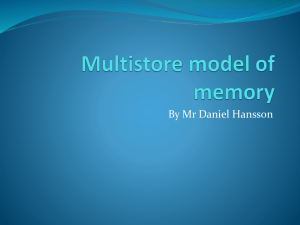Human Information Processing - II What is Memory? Human Memory
advertisement
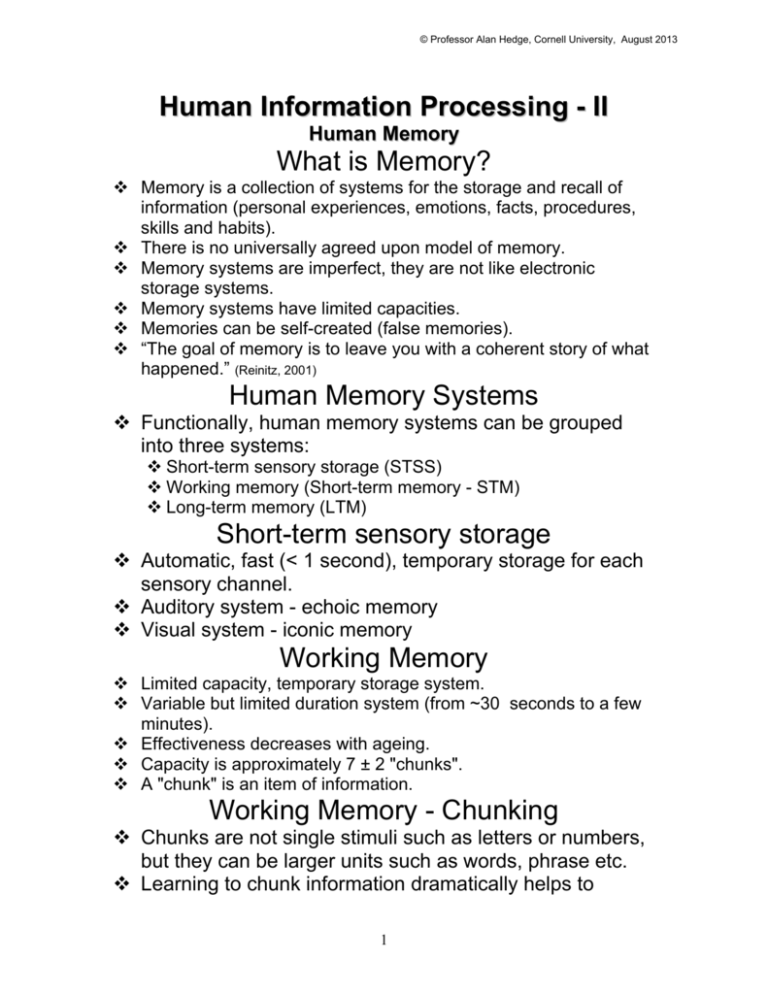
© Professor Alan Hedge, Cornell University, August 2013 Human Information Processing - II Human Memory What is Memory? Memory is a collection of systems for the storage and recall of information (personal experiences, emotions, facts, procedures, skills and habits). There is no universally agreed upon model of memory. Memory systems are imperfect, they are not like electronic storage systems. Memory systems have limited capacities. Memories can be self-created (false memories). “The goal of memory is to leave you with a coherent story of what happened.” (Reinitz, 2001) Human Memory Systems Functionally, human memory systems can be grouped into three systems: Short-term sensory storage (STSS) Working memory (Short-term memory - STM) Long-term memory (LTM) Short-term sensory storage Automatic, fast (< 1 second), temporary storage for each sensory channel. Auditory system - echoic memory Visual system - iconic memory Working Memory Limited capacity, temporary storage system. Variable but limited duration system (from ~30 seconds to a few minutes). Effectiveness decreases with ageing. Capacity is approximately 7 ± 2 "chunks". A "chunk" is an item of information. Working Memory - Chunking Chunks are not single stimuli such as letters or numbers, but they can be larger units such as words, phrase etc. Learning to chunk information dramatically helps to 1 © Professor Alan Hedge, Cornell University, August 2013 improve memory. Chunked information is easier to learn and remember (phone #'s, SS#, car plates, credit card #'s). Working Memory Working memory requires uninterrupted rehearsal for maximum effect: Maintenance rehearsal - helps to maintain items in short-term storage by repetition (e.g. repeating a phone number) Integrative rehearsal – helps the transfer of items from STM to LTM (takes ~ 30 minutes). Contents of STM are compared with LTM to determine what should be stored. Working memory can be disrupted by interference and time decay effects. Working memory deteriorates with age. Working Memory Working Memory- Serial Position Effect Long-term Memory (LTM) LTM involves: Encoding - putting items into the store Decoding - retrieving items from the store: Recognition - familiarity with the item but unable to fully identify or name this item. Recall - able to fully identify and name an item. LTM items can persist for decades. Age differences in LTM (LTM poorest in young (< 3 years) and old people) . Long-term Memory (LTM) Recognition and recall use different brain regions. Long-term Memory (LTM) Memory processes for 'what' and 'when' events require different brain regions. Long-term Memory (LTM) Episodic (old/new judgment) or semantic (living/nonliving decision) retrieval tasks on old (studied) and new words. Long-term Memory (LTM) 2 © Professor Alan Hedge, Cornell University, August 2013 Long-term Memory (LTM) Involves item transfer from working memory: Procedural memory – how to perform a sequence of actions. Episodic memory - when and where an event occurred. Personal experience memory. Includes “flashbulb memory”. Semantic memory - verbal and numeric codes and their meaning. Memory for 'facts‘. Procedural Memory Memory that involves a sequence of actions and that enables us to perform skilled tasks (involves motor memory as well as other systems) e.g. how to walk, how to talk, how to write, how to drive etc. Episodic Memory Memory of significant events in your life. Includes images, sounds, smells, emotions. Event "plays back" occurs in its original order ( as you remember this). Flashbulb Memory A special form of Episodic memory Reserved for events combining personal and societal importance (e.g. what were you doing when the Challenger disaster occurred?). Often inaccurate. Semantic memory Semantic memory items are stored as associative links in a semantic net. Mnemonics Mnemonics can aid LTM performance (e.g. All Cows Eat Grass, or Every Good Boy Deserves Favor, for musical notes). Limitations on Memory: Visual/Auditory Codes 3
